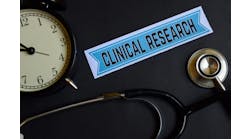An Epilepsy Learning Healthcare System (ELHS) has been created as a multi-stakeholder collaboration to gather data about people with epilepsy from clinics around the country and analyze it centrally to identify practices that lead to better outcomes.
Data collected include diagnosis, evaluation and care from healthcare providers, as well as information about seizure frequency, treatment side effects, comorbidities, self-management and quality of life from people with epilepsy and their care partners.
Six hospitals, accredited by the National Association of Epilepsy Centers (NAEC), have committed to the ELHS: Children's Hospital of Atlanta, Partners Healthcare (including the Massachusetts General Hospital and Brigham and Women's Hospital), Beth Israel Deaconess Medical Center, Barrow Nurological Institute, and Children's Hospital of Philadelphia. Additional epilepsy centers across the country are in the process of joining the ELHS.
“Our vision for the Epilepsy Learning Healthcare System is for all people with epilepsy to live their highest quality of life, striving for freedom from seizures and side effects, and we won't stop until we get there," said Brandy Fureman, Ph.D., vice president of research and new therapies at the Epilepsy Foundation, in a prepared statement. "We are excited about the response from innovative pediatric and adult sites who are joining this collaboration because they are interested in transforming care and research. Our current healthcare and community services system is fragmented; we intend to change that with a system where we learn from every person with epilepsy, and in turn, improve outcomes for everyone living with epilepsy."
Despite more than a dozen new medications becoming available in the last two decades, 30 percent of people with epilepsy still live with uncontrolled seizures. These new medications often have reduced side effects but have not changed the number of people living with uncontrolled seizures. There is also not enough information about the comparative effectiveness of these different medications available to guide treatment decisions. For some rare epilepsy syndromes, there are no approved therapies that control seizures. Other treatments that don't involve medications, such as surgery, dietary therapy, and devices, can be helpful but are not widely used. Furthermore, wide variations in epilepsy care delivery and clinical practice may contribute to poor individual outcomes.
A learning health system is structured so that patients and their families, community services providers, clinicians, researchers and health system leaders work together to design, implement, and disseminate collaborative research and quality improvement. This evidence-based approach can dramatically accelerate the ability to generate new knowledge and ensure it is applied so that the health of patients and populations improve.
The ELHS grew out of the Rare Epilepsy Network (REN), a research collaboration of more than 30 rare epilepsy organizations which is hosted by the Epilepsy Foundation and was partially funded through the Patient-Centered Outcomes Research Institute (PCORI). The ELHS is made possible by a Learning Health System Network Pilot Collaborative grant awarded earlier this year by PCORI and the James M. Anderson Center for Health Systems Excellence. The ELHS is also funded by contributions from the NAEC, participating ELHS centers, industry sponsors, and the Epilepsy Foundation.
Community-based partners include REN organizations and the local Epilepsy Foundation network. Patients and caregivers "co-produce" the activities of the ELHS through the Community Engagement Core. The James M. Anderson Center for Health Systems Excellence provides mentorship and the Division of Biomedical Informatics at the Cincinnati Children's Hospital Medical Center provides the registry infrastructure for the ELHS.

